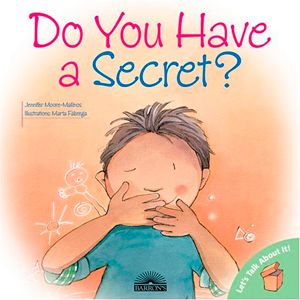Many of us have memories – some fond, some awkward – of those times when our parents sat us down to discuss sex and sexuality. For some, information from these moments was expanded on through formal education during our middle and high school sexual education classes.
Many children enjoy the benefits of having these sensitive conversations in safe, supportive environments. However, for some, their first encounter with sexual information is through exploitation and victimization. According to the National Child Traumatic Stress Network, one in four girls and one in six boys are victims of sexual abuse. Often, cases go unreported due to a fear of retaliation or harm, threats from perpetrators, and the secretive nature of the abuse. Victims of sexual abuse often experience guilt and shame. They fear others may not believe their reports, or that they will be removed from their home because of the disclosure.
Victims of sexual abuse need strong, warm, nonjudgmental, and supportive environments. Although presentation of symptoms may vary in emotional and behavioral expression, here are some warning signs and characteristics of children who have experienced sexual trauma: anger, difficulty sleeping and recurrent nightmares, anxiety, low self-esteem and self-worth, sadness, hypersexualized behaviors, inappropriate sexual knowledge and use of language, and avoidance of and refusal to remain alone with specific individuals.
Although warning signs can be useful identifiers, some children who experience sexual abuse do not exhibit emotional or behaviorial changes. Therefore, as parents, it is imperative to foster an environment that encourages communication and understanding of safe and unsafe behaviors.
Here are some things families can do:
1. Educate children in anatomically correct names for private body parts. Often because it is considered a cultural faux pas, we shy away from using accurate terminology. Have these conversations early with children, and teach them to care for their own private body parts.
2. Empower children to make decisions about their bodies. Children should be encouraged to say “no” if they feel uncomfortable with a touch, even if the form of touch is non-threatening (i.e. a hug). Identify the differences between “okay” and “not okay” touches.
 3. Discuss the differences between good secrets and bad secrets. Children should be encouraged to approach trusted adults when they feel unsafe. Do You Have a Secret? by Jennifer Moore-Mallinos is a wonderful book for discussing this topic.
3. Discuss the differences between good secrets and bad secrets. Children should be encouraged to approach trusted adults when they feel unsafe. Do You Have a Secret? by Jennifer Moore-Mallinos is a wonderful book for discussing this topic.
4. Teach vigilance. We frequently teach children to be cautious of strangers, often overlooking that a majority of perpetrators are familiar and trusted individuals.
If a child discloses sexual abuse, it is important to remain calm. Child disclosure of harm may illicit strong emotions for adults. However, a parent’s negative reaction makes future communication difficult for children. Avoid placing blame and believe your child. During their disclosure, children need a listening ear, reassurance, and support. Praise your child for approaching you with this topic. Lastly, protect your child by ensuring there are no interactions with the abuser, and by reporting the incident to the authorities.
It is never too early to foster healthy communication and equip children with developmentally appropriate knowledge and skills regarding safe sexual behaviors. Remember, you are the expert on your child, so take action if you notice concerning changes in mood and behavior.
Suspect Child Sexual Abuse?
Call Virginia’s Child Abuse Hotline: 1-800-552-7096, and your local Child Protective Services to establish professional care, as treatment is multifaceted and may take considerable time. You can also contact Greater Richmond SCAN (Stop Child Abuse Now) at 804-257-7226.
__________________________________________________________________________



